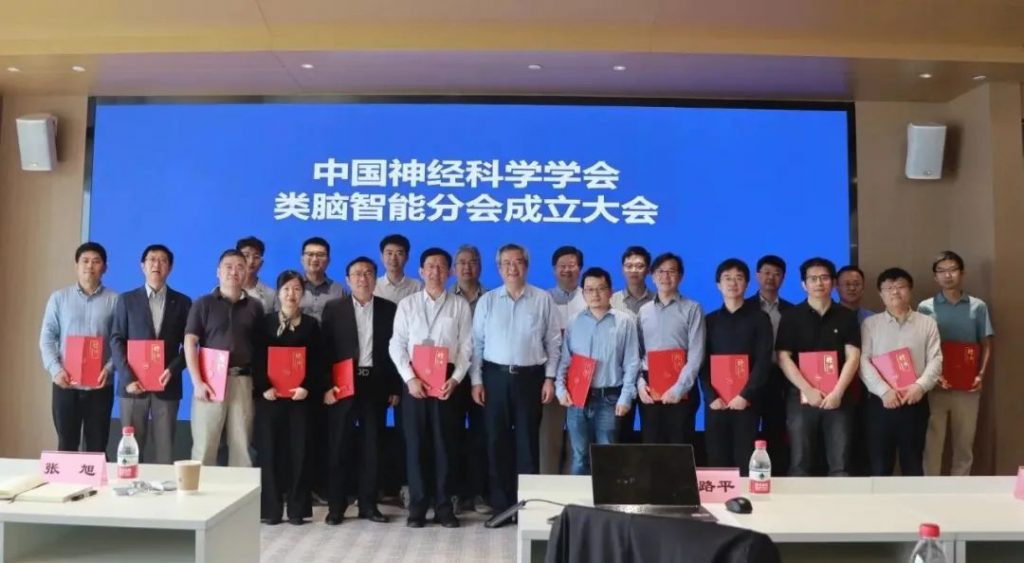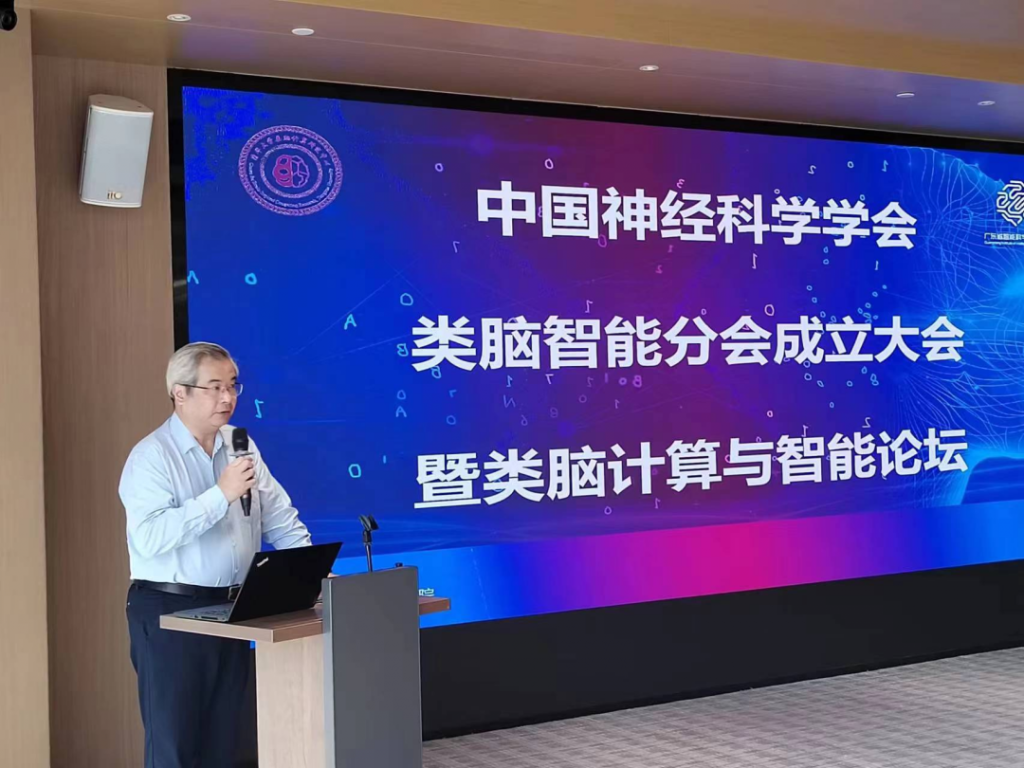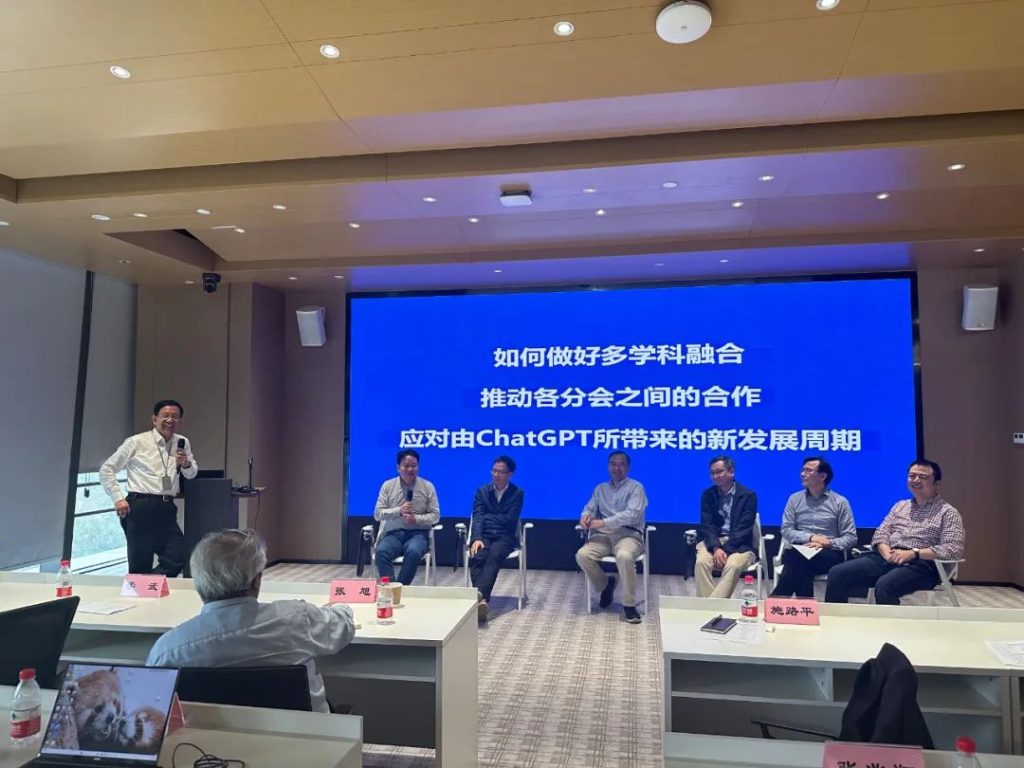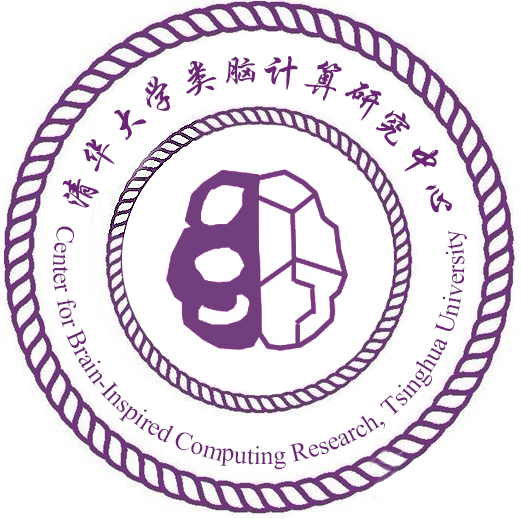On March 24, 2023, the inaugural meeting of the Chinese Society for Neuroscience Computational Intelligence Branch, the first committee meeting of the Computational Intelligence Branch, and the Brain-Inspired Computing and Intelligence Forum were successfully held at the Guangdong Provincial Institute of Intelligent Science and Technology. The Computational Intelligence Branch currently has more than 600 members, including top experts from well-known universities, research institutes, and cutting-edge technology enterprises nationwide.

Academician Zhang Xu, a member of the Chinese Academy of Sciences and President of the Chinese Society for Neuroscience, attended the opening ceremony and presented appointment letters to the committee members. In his opening speech, Zhang Xu expressed that from scientific research and development to technological application, brain-inspired intelligence will be the future trend. To lead the international forefront in brain-inspired intelligence and develop advanced brain-inspired chips, our country needs to explore breakthroughs in multiple disciplines. In future research, brain science and intelligent technology will be closely integrated. The establishment of the Computational Intelligence Branch serves as a bridge between brain science and artificial intelligence, providing a platform for multidisciplinary integration.

Professor Shi Luping, Director of the Center for Brain-Inspired Computing Research at Tsinghua University and Director of the Computational Intelligence Branch, attended the event and presented an overview of the branch and its annual activity plan. He pointed out that the organizational mission of the Computational Intelligence Branch is to carry out, support, coordinate, and promote scientific research in the field of brain-inspired intelligence. The branch will actively provide innovative frameworks and research platforms for brain-inspired computing and intelligence.

On March 24, 2023, the inaugural meeting of the Computational Intelligence Branch of the Chinese Society for Neuroscience was held along with the first committee meeting, at the Guangdong Provincial Institute of Intelligent Science and Technology. The meeting invited five core experts from the Computational Intelligence Branch to give presentations: Professors Zhao Rong from Tsinghua University, Pan Gang from Zhejiang University, Researcher Zhang Zhaoxiang from the Chinese Academy of Sciences’ Institute of Automation, Professor Miao Xiangshui from Huazhong University of Science and Technology, and Researcher Huan Yuxiang from the Guangdong Provincial Institute of Intelligent Science and Technology. They shared the latest developments in brain-inspired systems, brain-machine technology, brain-inspired algorithms, neural morphological devices, and neural computing modeling. They also discussed strengthening cooperation between academia, industry, and research institutions and exploring the construction of a complete brain-inspired computing ecosystem to promote the development of brain-inspired computing.
To promote integration and collaboration among various branches, the forum also invited five other branch leaders to give academic presentations: Professor Wu Si from Peking University’s Computational Neuroscience and Neural Engineering Branch, Professor Li Wu from Beijing Normal University’s Cognitive Neurobiology Branch, Researcher Tao Hu from the Brain-Machine Interface and Interaction Branch of the Shanghai Institute of Microsystem and Information Technology, Professor Bi Guoqiang from the Synapse and Neural Plasticity Branch of the University of Science and Technology of China, and Professor Yao Dezong from the Consciousness and Consciousness Disorders Branch of the University of Electronic Science and Technology of China. They shared new progress in basic brain science research and discussed interdisciplinary integration and collaboration.
During the forum, Professor Shi Luping hosted a roundtable discussion on “How to Promote Collaboration Between Various Branches and Address the New Development Cycle Brought by ChatGPT.” Branch leaders and committee members pointed out that we are at a turning point in a new era, and while facing new challenges and opportunities brought by ChatGPT, we need to promote and strengthen collaboration between various branches. Through interdisciplinary integration and collaboration between academia, industry, and research institutions, we aim to achieve breakthroughs in the frontier of brain-inspired computing and intelligence and cultivate new innovative talents required by the country.
During the forum, participants also visited the Guangdong Provincial Institute of Intelligent Science and Technology. Established on June 26, 2021, the institute is a provincial institution jointly supported by Guangdong Province, the Guangdong-Hong Kong-Macao Greater Bay Area, and the city of Zhuhai. It primarily focuses on brain science, intelligent science, and technology research.
Currently, China has achieved significant breakthroughs in the fundamental theory and core technologies of brain-inspired intelligence. However, to occupy a dominant position in fierce international technological competition, continuous research and innovation is still required. The “New Generation Artificial Intelligence Development Plan” sets a development goal of achieving significant breakthroughs in brain-inspired intelligence by 2030, providing a clear direction for the Computational Intelligence Branch’s progress and development. The Computational Intelligence Branch will strive to seize opportunities, target major national needs, produce groundbreaking and original achievements, and contribute to leading the development of brain-inspired intelligence in the country and building a strong technological nation.


